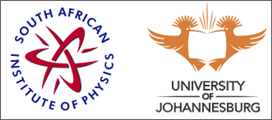Speaker
Abstract content <br> (Max 300 words)<br><a href="http://events.saip.org.za/getFile.py/access?resId=0&materialId=0&confId=34" target="_blank">Formatting &<br>Special chars</a>
On the African continent, South Africa has been the pacesetter for Radio Astronomy, with the long established Hartebeesthoek Radio Astronomy Observatory (HartRAO). The current seven-dish MeerKAT precursor array (KAT-7) leading to the up and coming 64-dish MeerKAT and the giant Square Kilometer Array (SKA), will be used for transformational and unprecedented radio astronomy researches that will lead to new discoveries. Ghana which had not been known in the area of radio astronomy, has been mentored by South Africa over the past six years and will soon stand tall in the field of radio astronomy on the continent. The country will soon have a science-quality 32m dish converted from a redundant satellite communication antenna. It will initially be fitted with 5 GHz and 6.7 GHz receivers to be followed later by a 1.4 - 1.7 GHz receivers. It will be designed for use as a single dish Observatory and for participation in the developing African Very Long Baseline Interferometry (VLBI) Network and the European VLBI network. As an African partner to the SKA, Ghana is planned to host a remote station during SKA Phase 2. Ghana's location of 5 degree north of the Equator gives it the advantage of viewing the entire Milky Way and almost the entire sky. In this piece, we present Ghana's story in the radio astronomy scene and the science/technology that will soon be done from there.
Apply to be<br> considered for a student <br> award (Yes / No)?
Yes
Level for award<br> (Hons, MSc, <br> PhD)?
PhD
Would you like to <br> submit a short paper <br> for the Conference <br> Proceedings (Yes / No)?
Yes
Main supervisor (name and email)<br>and his / her institution
Prof. Hartmt Winkler, hwinkler@uj.ac.za, University of Johannesburg

